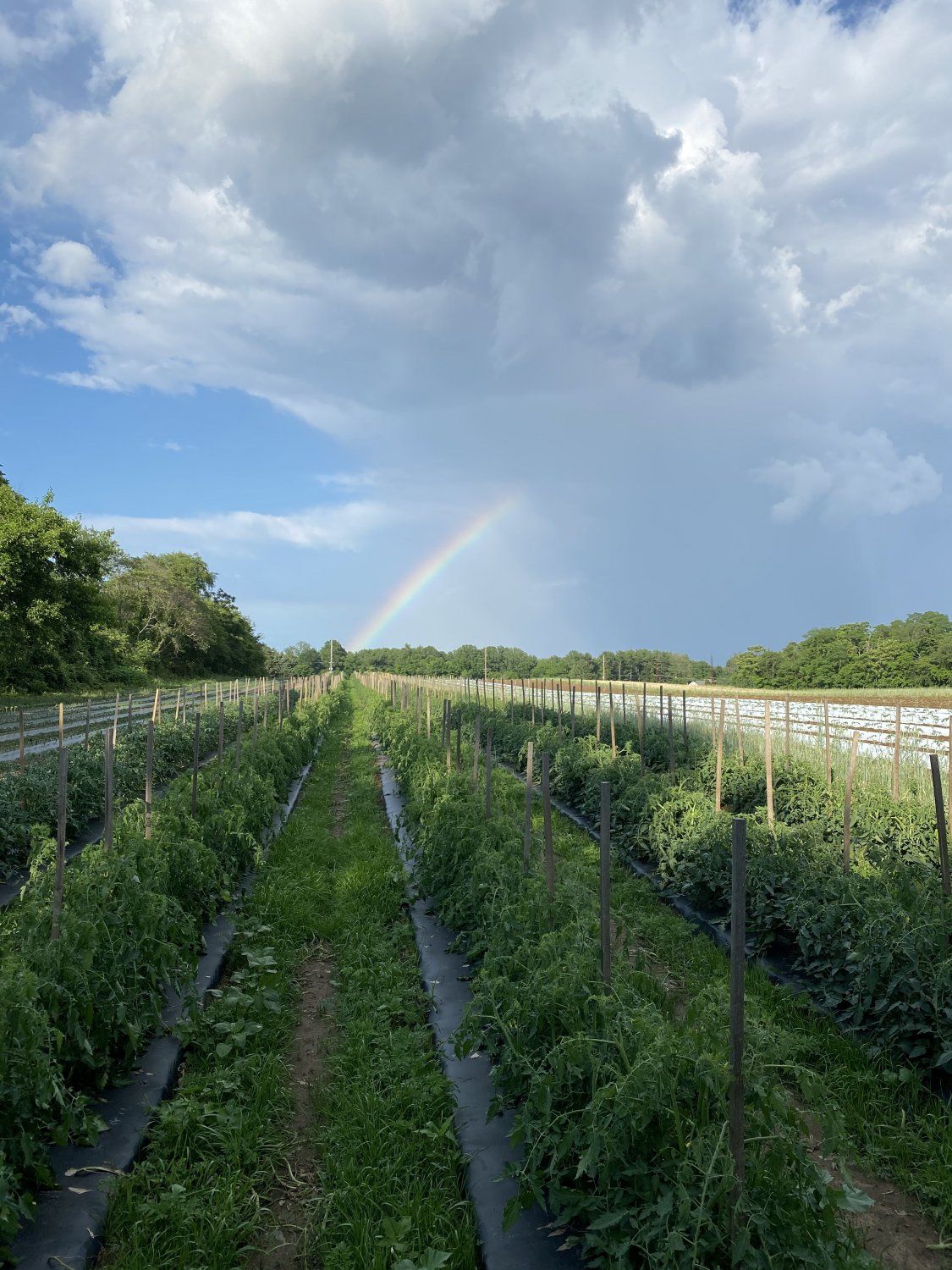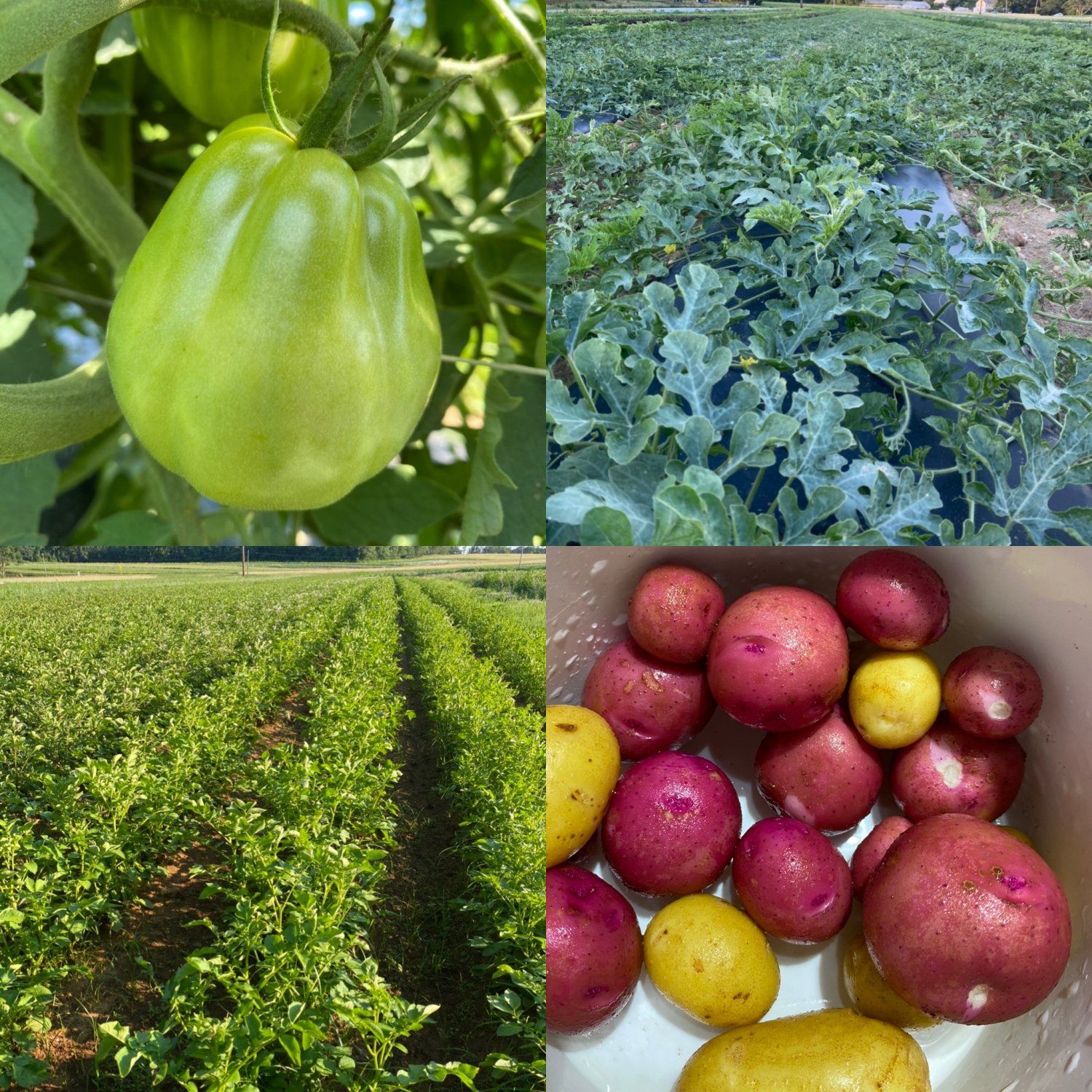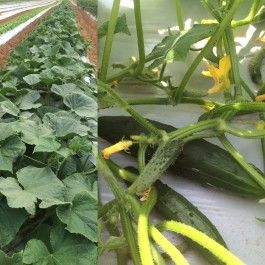D&V Organics CSA
Week 6
More summer crops are on the way this week with the addition of cucumbers and more zucchini, as well as baby beets and radicchio. We are happy that some storm fronts have come in over the past couple of weeks to break the dry streak we had. It is much easier on us when we can get some regular rainfall and cooler temperatures. As this warm and wet weather sets in, it reminds us of the importance of taking a pro-active pest control approach on our farm. With the higher summer temperatures, weather fronts and extended periods of wetness on the plant leaves, the incidence of plant diseases increases. Despite being organic growers, we have tools at our disposal for managing plant diseases, which include things like organic approved fungicides, increasing the distance between plants to encourage faster leaf drying times, and installing stakes to keep sprawling plants upright and drying faster. Some plants will inevitably develop issues due to the seasonal conditions and movement of plant pathogens despite employing cultural precautions. Plant pathogens cause plant diseases and are among the most difficult things to control on our farm, so there comes a time during each season where we must begin employing a program of organic fungicides to provide necessary protection. With a greater interest in organic produce, the agriculture industry has responded by pouring more money into crop protection and developing new organic pesticides to support organic crop production. The process of organic approval for pesticides is lengthy and takes nearly a decade from product development to organic approval, ensuring it meets the criteria established by the National Organic Standards Board. Some of the fungicides we use are things like soil dwelling bacteria that have a competitive advantage on leaf space over plant pathogens, and some provide an action against the pathogen by destroying it. Other fungicides include plant extracts that induce an immune response by the plant to increase their response to an impending pathogen invasion. All of the organic fungicides require a proactive approach prior to the development of a pathogen influx, which makes timing and knowledge critical components. It's often difficult for us to find the time to focus on the science behind everything when managing the tasks and people are the largest component of the business, but it is very engaging and fun to understand the how and why of crop production.
Enjoy,
Derek & Vicky




